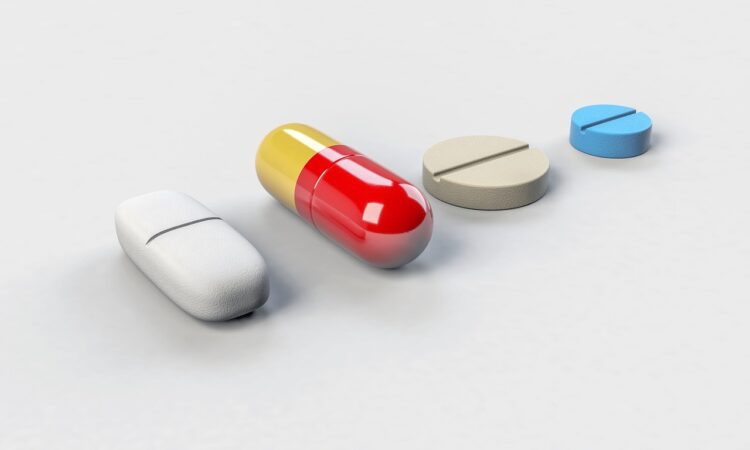By Little Pill 2022-06
Antibiotics are essential drugs purposed to treat infection caused by bacteria by killing the bacteria or decreasing bacteria growth so our immune system can fight off the infection. As a result, antibiotics can prevent infection and the spread of disease as well as reducing serious disease complication.
When we are sick with fever, pain, fatigue, sore throat, cough, nasal congestion, or headach, we ask the doctor for help. Some people may self-diagnose an infection and ask the doctor for antibiotics. The doctor may need to do testing before diagnosing, whether an upper respiratory tract infection, ear infection, urinary tract infection, or other serious infections involving the blood, bones, brain, or other organs. In simple cases of a sore throat or cough and cold symptoms, the doctor may not prescribe antibiotics until the test result confirms the bacteria caused it. Instead, the doctor may recommend medications for symptom management in these situations while our immune system can destroy the invading germ. Avoid pressuring your doctor to give you an antibiotic prescription. Instead, ask your doctor for advice on how to treat symptoms.
Antibiotics do not work in infections caused by a virus, and some typical viral infections include cough, cold, runny nose, Flu, Bronchitis, ear infections, sinus infections, stomach flu, and coronavirus. The doctor will not prescribe an antibiotic for a viral illness because it won’t help you feel better nor cure the infection but may cause needless and harmful side effects and promotes antibiotic resistance. However, a viral infection can cause secondary bacterial infection if you have a weak immune system. Rest, hydration, and healthy meals can boost our immune system, but if your condition gets worse after 5 days or so, it’s a good idea to seek medical attention again.
Antibiotic resistance occurs from overuse or misuse. Overuse from taking an antibiotic for a viral infection leads to attacking the bacteria in your body. These are bacteria that are helpful or are not causing disease. This incorrect treatment can promote antibiotic-resistant properties in harmless bacteria that can be shared with other bacteria. It can also allow potentially harmful bacteria to replace the harmless ones. Misuse from stop taking an antibiotic as soon as you feel better or skipping doses so you can save leftover antibiotics for a later illness can also promote the spread of antibiotic-resistant properties among harmful bacteria. The consequences of antibiotic resistance include more-serious illness, longer recovery, more visits to doctors, and more-expensive treatment and some treatments have more damaging side effects.
There are situations where the prescribed antibiotics have to stop due to allergic reactions, intolerable side effects, or inefficacy that you need to knock on the doctor’s office once again. It is more than just finding out if you have an infection—the discussion between you and your doctor probes for more details and possibly further investigation. For example, a patient has developed a rash on the belly that spreads throughout the body and face after 2 days into the treatment. She immediately called the pharmacist, who advised her to stop the antibiotic and call her doctor for an alternative antibiotic.
Another patient developed diarrhea soon after starting the antibiotics; the pharmacist advised her to take probiotics during antibiotic treatment to lessen episodes and severity of diarrhea. Antibiotics can destroy the normal, non-harmful bacteria in the gut, and probiotics increase the levels of non-harmful bacteria, thereby minimizing the risk of worsening diarrhea. For the probiotic to be effective, it should take at least 4 hours apart from the antibiotic.
Another patient was hospitalized with a bone infection. Her infection started after a fall on the street in Cuba a month before admission. She took antibiotics for 10 days but the wound was not healed. When she returned to Toronto, she felt pain at the injured site even though scabs were formed. Further investigation and testing determined the bacteria has multiple resistance and required an antibiotic not available as an oral pill.
When we are sick, the doctor is the one we ask for help to know the diagnosis. We seek advice if there is no progress; and keep knocking, consulting until our sickness resolves. Similar to sickness, with decision making, uncertainty, and dismay, we ask our friends and family for help. We seek advice from related people and consult professionals in extreme circumstances; however, it remains unresolved and worsens and intensifies the situation. The “Sermon on the Mounts” listed eight blessings that Jesus Christ preached, and he further explained, “Ask and it will be given to you; seek and you will find; knock and the door will be opened to you. For everyone who asks receives; the one who seeks finds; and to the one who knocks, the door will be opened. “ (Matthew 7:7-8). Christ promises that those who ask, seek, and knock will receive the goodness from God who knows what is best. As stated, “Which of you, if your son asks for bread, will give him a stone? Or if he asks for a fish, will give him a snake? If you, then, though you are evil, know how to give good gifts to your children, how much more will your Father in heaven give good gifts to those who ask him!” (Matthew 7:9-11)

